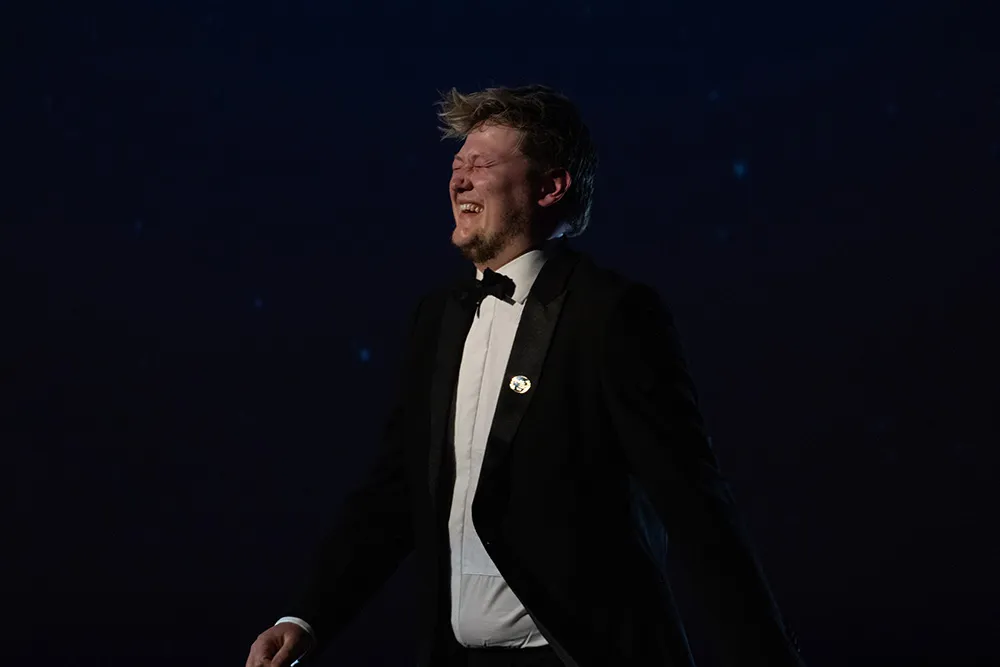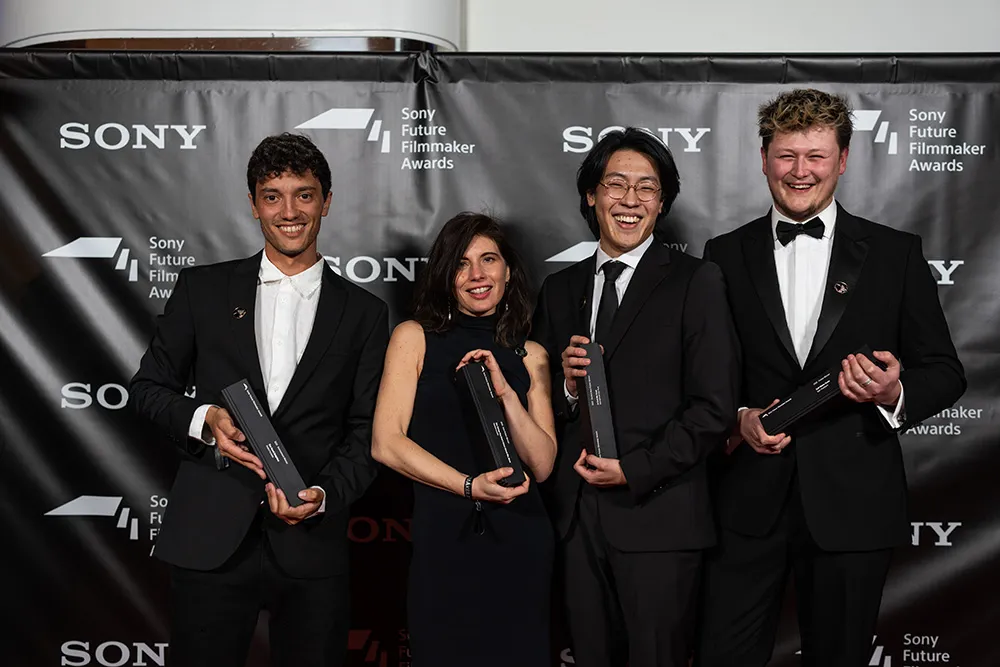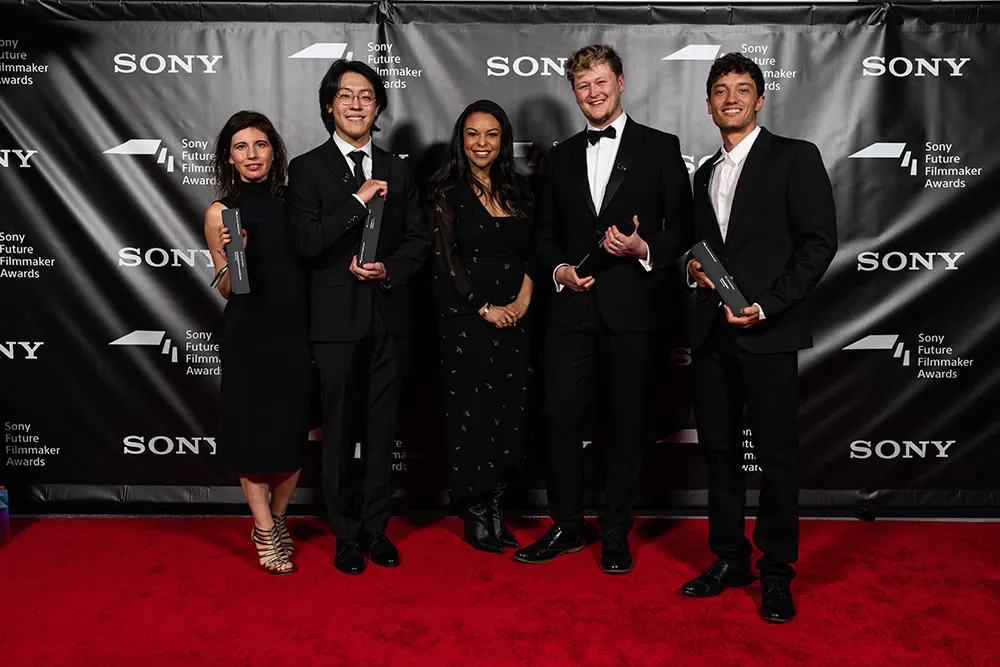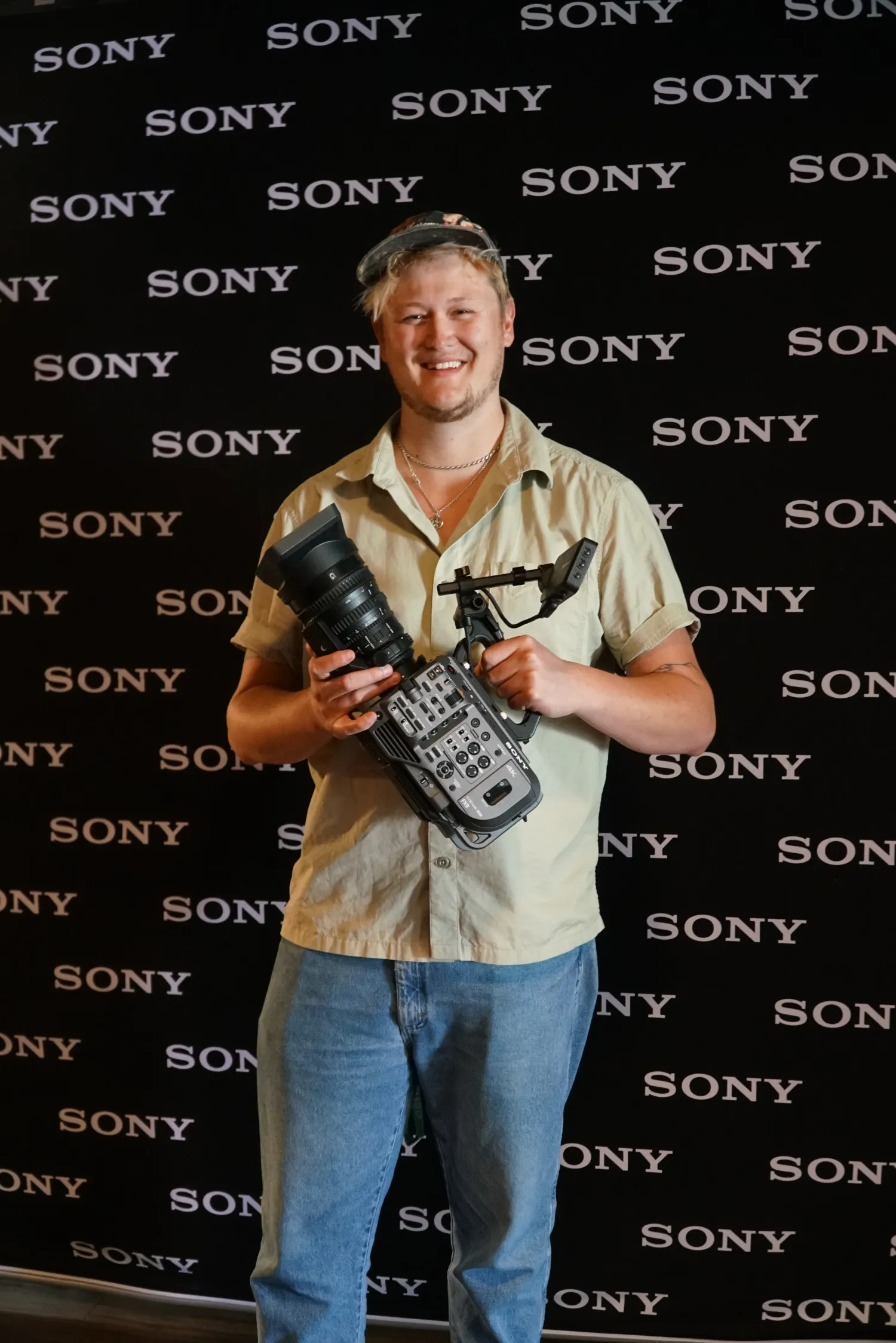We catch up with Dan Thorburn, who was the Fiction category winner in the Filmmaker competition in the inaugural Sony Future Filmmaker Awards. A writer and director from the North of England, Dan impressed the judges with his emotion-charged narrative Salt Water Town, which explores the challenges of a father and son dynamic, masculinity and rural poverty.

How did you get into filmmaking?
I originally studied fine art at Central St Martins and always thought I wanted to be a painter, but there I became pretty disillusioned with the practice and felt a wee bit lost. I was lucky to have a fantastic tutor who introduced me to artist moving image and taught me the basics of video editing. I started making artist films with found footage and realized it was a great way for me to tell stories and was something I felt more in tune with than my painting work. From there I began pushing myself and ventured further into narrative film work and when I moved back to Manchester I knew this was the practice I wanted to use to tell my stories.
What was the first filmmaking project you were proud of?
After moving back to Manchester I began to study film and met some amazing people from the North who shared the same impetus to make drama as I did. We took a few of my grandad's old diaries from when he worked out in Northern Ireland during The Troubles and found some incredibly detailed stories which, once transposed to a screenplay, made for some really compelling drama. Looking back they’re not the best films and they’re so exposition heavy that it pains me to watch them now ,but that's when I first think I believed that I could create drama and work closely with actors to help them express intense emotions in a safe environment.

What's the best piece of career advice you've ever received?
Not to be afraid to ask for help or to be vulnerable. I think many people believe that the ‘fake it till you make it’ method will serve you well but really all I see that doing is alienating you from peers who can help you achieve your goals. This is an industry full of people who were helped and are therefore very open to helping others, and I think showing that vulnerability and being honest about why you are struggling will often result in help finding you.
You're a writer too. Who or what are your creative influences?
I am influenced by intensely character-driven projects - whether that's through literature or film or TV, I find that being able to sit within the headspace and psyche of a character intrigues me and excites me. Especially when done in a highly authentic manner. This is what I hope to bring to my own work.

In your opinion, what makes a good short film?
I believe that a good short film pulls you deeply into the story and the world of the characters within the first 30 seconds. I want to understand their motives and who they are quick enough that I can then enjoy the remaining 10 minutes or so we have to spend with them. The old adage of get in late and get out early has never been more relevant than when making short-form film!
Is there anything you've learned about your filmmaking process since winning your award?
Spending time with such a diverse and talented group of filmmakers from around the world during the awards really opened my eyes to the importance of telling unique and personal stories. I learned that very simple stories have huge merit when told from an authentic and deeply intimate place.
What are you currently working on?
Currently, I am working towards my debut feature film; a project called ‘Barfly’, which explores the addiction to chaotic lifestyles within the Manchester bar scene and the dangers that follow. I am excited to continue making important regional content with my writing partner Jack Sherratt. We are also both working on a TV show loosely based off the short Salt Water Town which explores a small coastal community, their love for the local football club and their fight against the rising tide. I am also attached to direct a feature film with Mother Pictures which again focuses on telling regional stories with universal themes.

What was your biggest takeaway from your time at Culver City?
The community that we built and the friendships that blossomed despite being from all over the world is the most important thing for me. I am so excited to see what the rest of the cohort come to do over the next few years and can’t wait to catch up with them soon!
